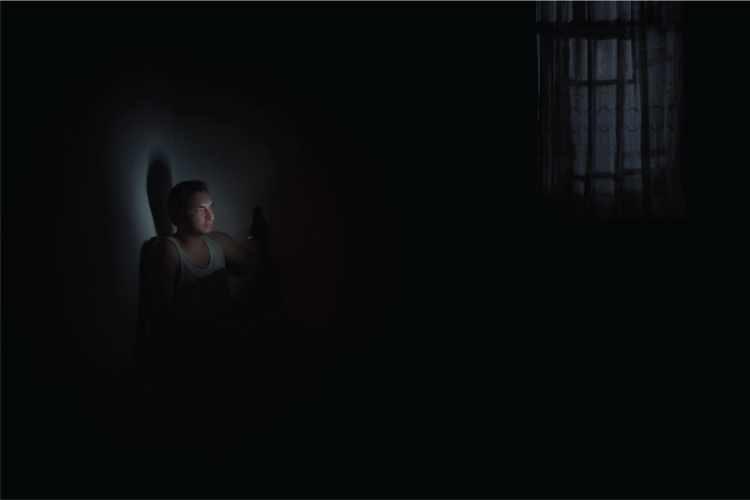Movember is an annual event during the month of November to raise awareness of men’s health issues, including a focus on men’s mental health. As the “Movember” movement is in full swing for men this month, it felt only natural to place the spotlight on mental health for men, specifically within the context of Post-Traumatic Stress Disorder (PTSD).
One grave statistic stands out to me: Men die as a result of suicide 3.5 times more frequently than women.
While working with both men and women who have been diagnosed with PTSD, I began to wonder if any gender differences existed in the way men experienced and attempted to cope with trauma.

What is PTSD?
Post-Traumatic Stress Disorder occurs in 3.5% of the U.S. population. PTSD is defined as a psychiatric disorder that may occur in people who have experienced or witnessed a traumatic event such as a:
- natural disaster,
- serious accident,
- terrorist act,
- war/combat,
- threatened with death,
- sexual violence or
serious injury.
PTSD can also stem from childhood experiences, with the most common forms of trauma being sexual abuse, witnessing serious injuries, or the unexpected death of a beloved one.
One article claims that while PTSD is deemed a “disorder,” it should be looked at as a “normal physiological reaction” to a stressful situation. However, it can become disordered based on the amount of disruption that is caused in one’s life after the event is over.
PTSD can be categorized into two types:
- Acute PTSD: Symptoms persist for less than three months
- Chronic PTSD: Symptoms persist for more than three months
ONLY ONE-THIRD OF PEOPLE in therapy are men. Men are not asking for help for mental health crises.

Case Studies
Men experience symptoms of PTSD in different ways. They may express intense amounts of anger, cope through substance abuse, become depressed and isolated, or act out sexually. Consider these examples of men with PTSD symptoms:
- Cody is newly married and his wife is pregnant. In his childhood, he was abandoned by his mother and cared for by multiple family members. Cody has struggled with this abandonment his entire life and now acts out by seeking sexual relationships outside of his marriage. Because Cody has never fully dealt with the trauma of his childhood years, the trauma is still affecting him today.
- Luke is middle-aged, happily married, and has three young children. Luke leads a successful life from an outsider’s perspective. However, Luke recently experienced a traumatic loss after his mother died unexpectedly. Luke has struggled to cope with this loss and is starting to experience intense depression and anger, and these emotions have been expressed inappropriately at home and at work.
- Michael is a college student who was raised by divorced parents. Prior to his parent’s divorce, he commonly witnessed his parents in physical fights. Michael was recently out with friends and witnessed a bar fight. He has since been having flashbacks to the violence he experienced as a child. Michael is currently avoiding his peers and struggling to stay focused on his studies.
Without proper treatment and support, these three men are at risk of self-harm. Unfortunately, men, more than women, hold out on seeking out support. As a result, men are dying by suicide at alarming rates. According to the Movember Movement website, globally, on average, one man dies of suicide every minute of every day.
Other research shows that globally, suicide rates in men are just over twice as high as for women. In 2017, the global suicide rate for women was 6.3 deaths per 100,000; for men, it was just over twice that figure at 13.9 per 100,000.

Are Men Avoiding Therapy?
A staggering 60.7% of men and 51.2% of women will experience at least one potentially traumatic event in their lifetime. Even though the statistic points towards men experiencing traumatic events more than women, a PTSD diagnosis is twice as common in women than in men.
Furthermore, an article by Gateway Counseling reports that only one-third of people in therapy are men. Men are not asking for help for mental health crises.
Social scientists point to stereotypical masculine bravado as a barrier for men asking for help. Men often see mental illness as a sign of weakness, or they feel ashamed.
Researchers say women tend to “act in” when they are suffering: They express emotions such as worthless, guilt and helplessness. Men, on the other hand, commonly “act out” through behaviors such as anger, impulsiveness and substance abuse. In my experience as a therapist, I would describe these generalities as valid.

Moving Forward
My hope for Men’s Health Awareness Month is that we, as families and a society, begin to break down gender stereotypes and the stigma of therapy. Men and women alike should see mental health support as totally normal. Family members should encourage the men in their lives to get help.
Treatment works. One study of adolescents with depression shows that more than 80% of people that seek treatment were successfully treated using therapy, medication, or a combination of both.
If you are suffering from a mental concern, make an appointment with a mental health professional or reach out to family members. These are signs of strength and courage.
Stoically suffering causes unnecessary pain and it could cost you your life.
Don’t hesitate to reach out to Ammirati Counseling to ask and inquire about support services that you can receive to help with overcoming feelings of depression, loneliness, stress or anxiety.
Ammirati Counseling is a boutique counseling group with an office in Bannockburnn serving Chicago. Therapists also offer private therapy via remote online. They provide comprehensive care to children, teens, adults, couples, families, and the LGBTQ community.
Terri specializes in empowering clients to strengthen their relationships. She works with all aspects of relational distress and provides solution-focused therapy.
- Gottman Couples Therapy: Key Principles And What You Can Do Now - June 17, 2024
- Healing From Trauma: 3 Ways To Take Control - June 3, 2024
- Signs & Symptoms of Depression In Men - May 20, 2024

